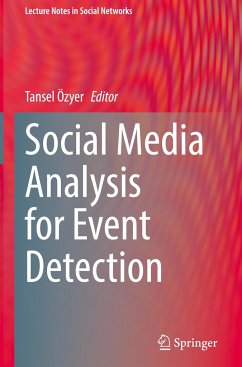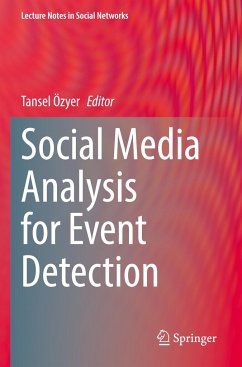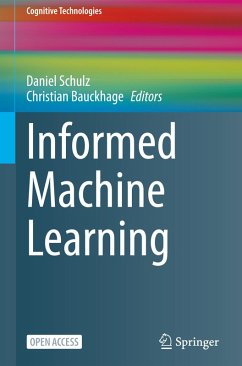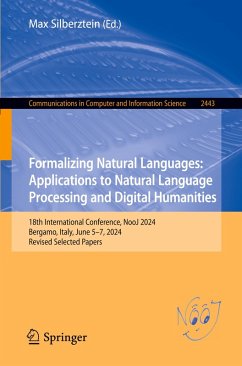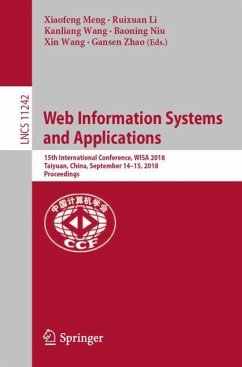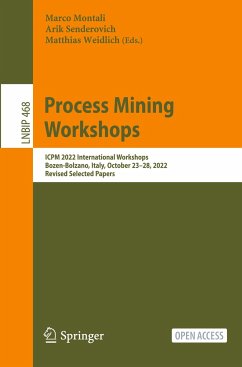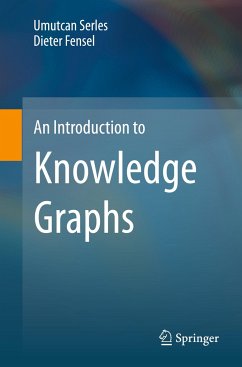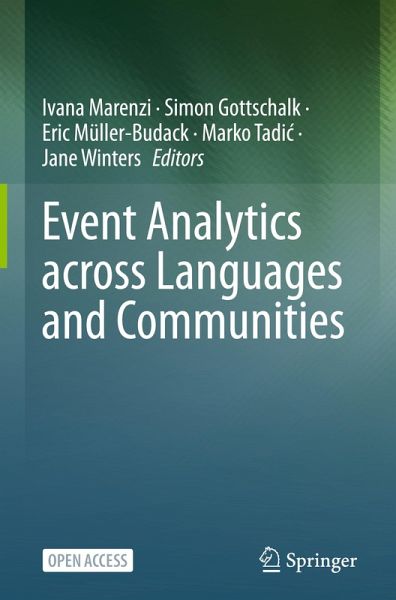
Event Analytics across Languages and Communities
Versandkostenfrei!
Versandfertig in 1-2 Wochen
39,99 €
inkl. MwSt.

PAYBACK Punkte
20 °P sammeln!
This open access book presents interdisciplinary and cross-sectoral research results fostering event analytics across languages and communities. It is based on the CLEOPATRA International Training Network, which explored how we analyze and understand the major events that influence and shape our lives and societies, and how they unfold online. This analysis was achieved through various case studies, the development of novel methodologies in fields such as data mining and natural language processing, and the creation of new event-centric datasets aggregated in the Open Event Knowledge Graph (OE...
This open access book presents interdisciplinary and cross-sectoral research results fostering event analytics across languages and communities. It is based on the CLEOPATRA International Training Network, which explored how we analyze and understand the major events that influence and shape our lives and societies, and how they unfold online. This analysis was achieved through various case studies, the development of novel methodologies in fields such as data mining and natural language processing, and the creation of new event-centric datasets aggregated in the Open Event Knowledge Graph (OEKG), a multilingual event-centric knowledge graph that contains more than 1 million events in 15 languages.
The book is divided into three parts, focusing on different aspects of event analytics across languages and communities: Part I Event-centric Multilingual and Multimodal NLP Technologies presents five chapters reporting on recent developments in NLP technologies required to process multilingual information. Next, the four chapters of Part II: Event-centric Multilingual Knowledge Technologies discuss technologies integrating multilingual event-centric information in knowledge graphs and providing user access to such information. Finally, Part III: Event Analytics covers three selected aspects of multilingual event analytics, namely an analysis of event-centric news spreading barriers, claim detection in social media, and the narrativization of events as a means of presenting event data.
This book is mainly written for researchers in academia and industry, who work on topics like natural language processing, large language models, multilingual information retrieval or event analytics.
The book is divided into three parts, focusing on different aspects of event analytics across languages and communities: Part I Event-centric Multilingual and Multimodal NLP Technologies presents five chapters reporting on recent developments in NLP technologies required to process multilingual information. Next, the four chapters of Part II: Event-centric Multilingual Knowledge Technologies discuss technologies integrating multilingual event-centric information in knowledge graphs and providing user access to such information. Finally, Part III: Event Analytics covers three selected aspects of multilingual event analytics, namely an analysis of event-centric news spreading barriers, claim detection in social media, and the narrativization of events as a means of presenting event data.
This book is mainly written for researchers in academia and industry, who work on topics like natural language processing, large language models, multilingual information retrieval or event analytics.




